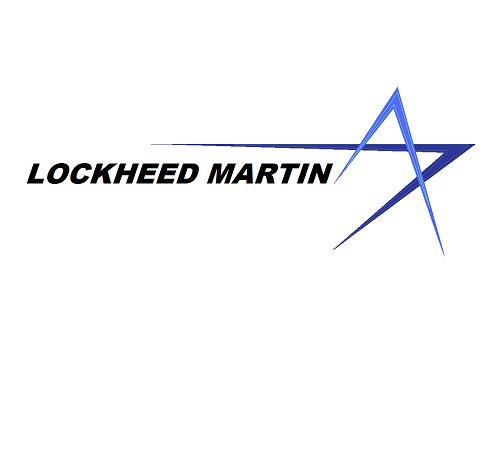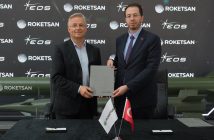
GAO: Continued Oversight Needed as Program Plans to Begin Development of New Capabilities
GAO: DOD Needs a Plan to Address Risks Related to its Central Logistics System
Attributable to Program Executive Officer Lt. Gen. Chris Bogdan
 The F-35 Joint Program Office (JPO) appreciates the Government Accountability Office (GAO) effort to provide the program, Services and Congress feedback on the progress of the F-35 program. The GAO conducted two focused F-35 reports this year — one on the overall program and the other on sustainment. Both reports were completed with the F-35 program’s full cooperation and unfettered access to information. Although the reports are factually accurate, the JPO does not fully agree with all of their conclusions and, in a few instances, statements are made without context or qualifying information, which may lead the reader to misinterpret the statements.
The F-35 Joint Program Office (JPO) appreciates the Government Accountability Office (GAO) effort to provide the program, Services and Congress feedback on the progress of the F-35 program. The GAO conducted two focused F-35 reports this year — one on the overall program and the other on sustainment. Both reports were completed with the F-35 program’s full cooperation and unfettered access to information. Although the reports are factually accurate, the JPO does not fully agree with all of their conclusions and, in a few instances, statements are made without context or qualifying information, which may lead the reader to misinterpret the statements.
The bottom line up front is the F-35 program continues to remain on the baseline set in 2012. The GAO recognizes program acquisition costs have decreased since 2014 and, for the past three years, the program’s overall cost and schedule have remained relatively stable.
As with any big and complex program, new discoveries, challenges and obstacles will occur. The F-35 is still in development, and this is the time when technical challenges are expected; however, we believe the combined government and industry team will resolve current issues and future discoveries. The team’s commitment to overcoming these challenges is unwavering and we will maximize the F-35’s full capability for the Warfighter.
The GAO’s only recommendation in the annual report was to establish F-35 Follow On Modernization (FoM) as a separate Major Defense Acquisition Program. The Department of Defense does not concur with this recommendation because it believes such an approach would generate an unnecessary administrative burden and create challenges in maintaining a partnered environment outside of the existing program charter. The F-35 Joint Program Office is fully committed to providing robust insight on FoM cost, schedule, and performance to program stakeholders, including the U.S. Congress, and will establish reporting requirements as necessary to meet their needs.
Regarding the GAO’s independent review on the F-35’s Autonomic Logistics Information System (ALIS), there were no surprises in the report. All of the issues mentioned are well known to the JPO, the U.S. Services, International Partners and our Industry team. The Department concurs with all four GAO ALIS recommendations and below is what we are doing about them:
Recommendation 1: Develop a holistic plan to address ALIS issues, prior to the start of full-rate production.
JPO ACTION: The JPO initiated an ALIS “Technical Roadmap” initiative earlier this year to further define strategic priorities and meet the F-35’s increasing global operational footprint. That plan will be completed this summer and inform budget submissions in the fall.
Recommendation 2: Conduct uncertainty and sensitivity analyses to improve the reliability of cost estimates.
JPO ACTION: The JPO is absolutely committed to developing accurate cost estimates and routinely conducts uncertainty and sensitivity analyses as required by internal and external stakeholders for decision support. The JPO will continue to work closely with program stakeholders and Service subject matter experts to perform sensitivity analyses in accordance with DoD guidance.
Recommendation 3: Ensure future ALIS estimates use historic data and reflect significant program changes.
JPO ACTION: The JPO used historic actuals for the majority of its estimate and is confident in the accuracy of its ALIS cost estimates. In instances where no cost data existed, the JPO uses standard cost estimating practices such as parametric estimations to determine the most accurate method to forecast expected costs. The JPO continuously maintains its cost estimates to reflect the latest program requirements.
Recommendation 4: Develop a standard, program-wide plan for ALIS training through the life cycle of the program.
JPO ACTION: The JPO initiated a four-phase comprehensive ALIS training evaluation in late 2015. When complete by the end of this year, the evaluation will result in a comprehensive plan to resolve ALIS training issues and inform budgets to institutionalize a comprehensive training program.
Overall, the F-35 program is executing well across the entire spectrum of acquisition, to include development and design, flight test, production, fielding and base stand-up, training, sustainment of fielded aircraft, and building a global sustainment enterprise. We thank the GAO for its support and feedback as we remain focused on developing, delivering and sustaining the F-35.





